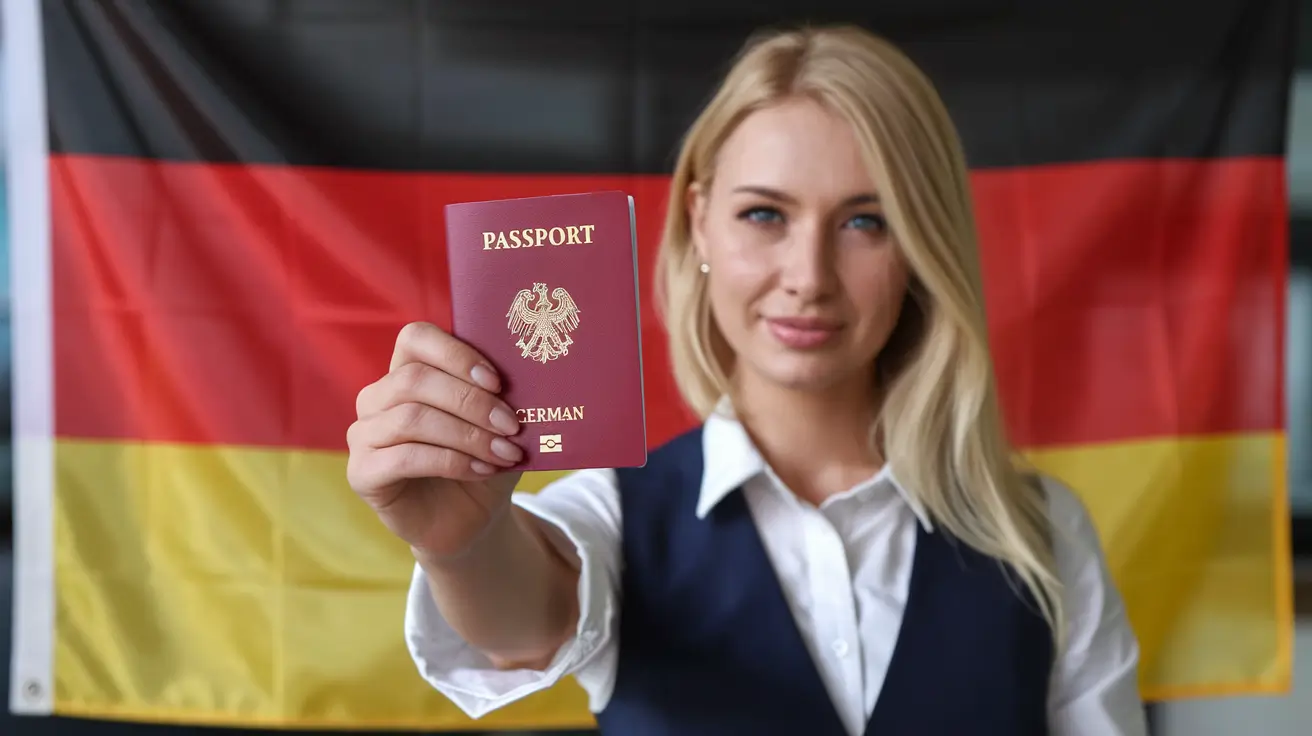
The New German Naturalization Law 2024:
All You Need to Know
Germany has long been a destination for immigrants seeking new opportunities and a high quality of life. In 2024, the country is set to implement significant changes to its naturalization law, making it easier for foreigners to become German citizens. These reforms aim to modernize the immigration system and address the country’s skilled labor shortages. Whether you’re a long-term resident in Germany or considering moving there, understanding these new regulations is crucial. This comprehensive guide will walk you through the key aspects of the new German naturalization law and how it might affect you.
- The New German Naturalization Law 2024: All You Need to Know
- A Paradigm Shift in German Immigration Policy
- Key Changes in the 2024 Naturalization Law
- Economic Integration and Financial Requirements
- The Naturalization Process Under the New Law
- Impact on Different Immigrant Groups
- Challenges of the German Citizenship Law
- Looking Ahead: The Future of German Immigration Policy
- FAQ on new German Naturalization Law
- Final Thoughts
A Paradigm Shift in German Immigration Policy
The new German naturalization law represents a substantial shift in the country’s approach to immigration and citizenship. For decades, Germany has grappled with its identity as a nation of immigrants. The 2024 reforms acknowledge this reality and seek to create a more inclusive society by lowering barriers to citizenship.
These changes come at a time when Germany faces demographic challenges, including an aging population and a shortage of skilled workers in various sectors. By making naturalization more accessible, the government hopes to attract and retain talented individuals who can contribute to the country’s economic and social fabric.
Key Changes in the 2024 Naturalization Law
Reduced Residency Requirements
One of the most significant changes in the new law is the reduction in the required period of residency before one can apply for citizenship.

As illustrated in the graph above, the new law reduces the standard residency requirement from eight years to just five years. This change significantly accelerates the path to citizenship for many immigrants, allowing them to fully integrate into German society more quickly.
Moreover, the law introduces even shorter residency requirements for certain categories:
- Three years for individuals who have shown exceptional integration efforts, such as outstanding language skills or civic engagement.
- Three years for spouses of German citizens, down from the previous requirement of four years.
These reduced timeframes make Germany’s naturalization process one of the most accessible among developed nations, potentially attracting more skilled immigrants to the country.
Dual Citizenship Acceptance
Another groundbreaking change is the acceptance of dual citizenship. Previously, most non-EU citizens had to give up their original citizenship to become German. The new law allows individuals to retain their original citizenship when acquiring German nationality.
This change is particularly significant for several reasons:
- It removes a major barrier for many immigrants who were hesitant to give up their original citizenship.
- It acknowledges the reality of globalization and the increasing mobility of people across borders.
- It allows individuals to maintain cultural and familial ties to their country of origin while fully participating in German society.
The acceptance of dual citizenship is expected to lead to a substantial increase in naturalization applications, especially from long-term residents who previously opted not to apply due to the requirement to renounce their original citizenship.
Language Proficiency Requirements
While the new law eases some requirements, it maintains a focus on integration through language proficiency. Applicants will still need to demonstrate German language skills, but the law introduces more flexibility in how these skills can be proven.
| CEFR Level | Description | Naturalization Requirement |
|---|---|---|
| B1 | Intermediate | Standard requirement |
| A2 | Elementary | Accepted for certain cases (e.g., hardship) |
| B2 or higher | Upper Intermediate or Advanced | May qualify for fast-track naturalization |
The table above outlines the language proficiency levels required for naturalization under the new law. While B1 level remains the standard requirement, the law now allows for more flexibility:
- Individuals with A2 level may be considered in cases of hardship or for older applicants.
- Those demonstrating B2 or higher proficiency may be eligible for fast-track naturalization.
- The law recognizes various forms of proof, including language certificates, school diplomas, and practical demonstration of language skills.
This approach ensures that language remains a key factor in integration while acknowledging the diverse circumstances of immigrants.
Integration and Civic Knowledge
The new law maintains the requirement for applicants to demonstrate knowledge of the German legal and social system. However, it introduces changes to make this process more accessible:
- The test now focuses more on practical knowledge relevant to daily life in Germany.
- Additional preparation materials and courses will be made available to help applicants prepare for the test.
- The law recognizes alternative ways of demonstrating civic knowledge, such as through active participation in local communities or volunteer work.
These changes aim to ensure that new citizens are well-equipped to participate fully in German society while recognizing that integration can take many forms.
Economic Integration and Financial Requirements
The new law strikes a balance between encouraging naturalization and ensuring that new citizens can support themselves financially. Here are the key points regarding economic integration:
- Applicants must demonstrate the ability to support themselves and their dependents without relying on social welfare.
- The law recognizes various forms of employment, including part-time work, freelancing, and entrepreneurship.
- Exceptions are made for individuals who are unable to work due to reasons beyond their control, such as disability or caring responsibilities.
It’s important to note that the law takes a holistic view of an individual’s economic situation, considering factors such as:
- Stability of income over time
- Potential for future earnings
- Qualifications and skills that contribute to employability
By adopting this flexible approach, the new law acknowledges the changing nature of work in the 21st century and supports Germany’s goal of attracting and retaining skilled individuals across various sectors.
The Naturalization Process Under the New Law
While the fundamental steps in the naturalization process remain similar, the new law introduces several changes to streamline the application and decision-making procedures:
- Online Application: A new online portal will be introduced to simplify the application process, allowing applicants to submit documents and track their application status electronically.
- Faster Processing: With the reduction in residency requirements, authorities are also committed to processing applications more quickly. The target is to complete most applications within six months.
- Transparent Decision-making: The law mandates clearer communication from authorities regarding the status of applications and reasons for decisions.
- Appeal Process: An improved appeal process will be in place for cases where applications are rejected, ensuring fair treatment and the opportunity for reconsideration.
Impact on Different Immigrant Groups
The new German naturalization law will have varying impacts on different immigrant groups. Here’s how some key groups might be affected:
- EU Citizens: While EU citizens already enjoy many rights in Germany, the new law makes it even easier for them to obtain German citizenship, potentially increasing the number of EU nationals choosing to naturalize.
- Non-EU Skilled Workers: This group stands to benefit significantly from the reduced residency requirements and the acceptance of dual citizenship, making Germany a more attractive long-term destination for global talent.
- Refugees and Asylum Seekers: The new law provides clearer pathways to citizenship for those granted asylum, recognizing their unique circumstances and integration efforts.
- Long-term Residents: Many long-term residents who previously chose not to naturalize due to the dual citizenship restriction may now reconsider under the new law.
- Children and Young Adults: The law includes special provisions for individuals who have grown up in Germany, making it easier for them to obtain citizenship.
Challenges of the German Citizenship Law
While the new naturalization law has been broadly welcomed, it has also faced some challenges and criticisms:
- Integration Concerns: Some critics argue that reducing the residency requirement may lead to insufficient integration. However, proponents point out that the language and civic knowledge requirements ensure a baseline level of integration.
- Administrative Capacity: There are concerns about whether German authorities have the capacity to handle a potential surge in applications. The government has promised to increase resources to address this issue.
- Security Considerations: Some have raised questions about the potential security implications of easier naturalization. The law maintains strict background check requirements to address these concerns.
- Economic Impact: While the law aims to attract skilled workers, some argue that it may not go far enough in addressing Germany’s labor shortages.
Looking Ahead: The Future of German Immigration Policy
The 2024 naturalization law represents a significant step in Germany’s evolving approach to immigration and citizenship. As the country continues to position itself as an attractive destination for global talent, we can expect further refinements and adjustments to immigration policies in the coming years.
Key areas to watch include:
- Digital Transformation: Further digitalization of immigration processes to improve efficiency and user experience.
- Skills-based Immigration: Potential introduction of a points-based system to attract workers with specific skills needed in the German economy.
- Integration Programs: Enhanced integration support services to help new citizens fully participate in German society.
- International Agreements: Potential bilateral agreements with other countries to facilitate movement of skilled workers and recognition of qualifications.
FAQ on new German Naturalization Law
Final Thoughts
As Germany implements these changes, it will be important to monitor their impact on immigration patterns, integration outcomes, and the country’s economic and social fabric. The success of this new approach could serve as a model for other countries grappling with similar demographic and economic challenges.
In conclusion, the new German naturalization law of 2024 marks a pivotal moment in the country’s immigration policy. By lowering barriers to citizenship, embracing dual nationality, and streamlining processes, Germany is positioning itself as a welcoming destination for immigrants from around the world. Whether you’re considering a move to Germany or are a long-term resident contemplating naturalization, these changes offer new opportunities to become part of the German society. As with any major policy shift, the true impact of these reforms will unfold in the years to come, shaping the future of one of Europe’s largest and most influential nations.

